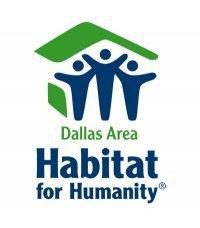
In the coming years, the Dallas area Habitat for Humanity will be working in overdrive to build more homes than ever before.
Dream Dallas, which was launched in 2010 but just announced to the public this month, is Habitat’s boldest new project.
The initiative is to raise $100 million to build and rehabilitate 1,000 homes in five of Dallas’ neediest neighborhoods. Dallas Habitat, which has been around for 25 years, has built over 850 homes in 20 different communities.
“While in the past Habitat’s model has been to build one home at a time, this new campaign is moving to revitalizing entire neighborhoods,” Andrea Anderson, director of marketing and communications for Dallas Habitat, said.
The initiative is expected to be completed by 2014 and will affect the communities of: Bonton, Joppa, South Dallas Fair Park, West Dallas and Lancaster Transportation Corridor.
“A lot of background went into picking the neighborhoods, but essentially it was those who needed it most that were chosen, based on census tracks, housing need repair and land availability to build on,” Anderson said.
Aisha Thomas, who has been a proud Habitat homeowner since 2006 and has served on the Habitat Board of Directors for two years, says that owning a Habitat home has been a true blessing for her and her children.
“Dream Dallas is an awesome project and it has already began to impact the lives for so many families for the better,” Thomas said.
Habitat has raised $48 million for the five-year plan through funding from private individuals, government and corporations. The nonprofit has already identified where its next $22 million will come from, but still needs to raise $30 million to reach its goal.
Dream Dallas will be a combination of home building and refurbishing. A Brush with Kindness, Habitat’s home repair program, will be incorporated into the initiative. In the neighborhoods where new homes are being built, existing homes will also be repaired.
Melissa De Leon, vice president of fundraising and development for Habitat, calls the Dream Dallas initiative “Habitat on steroids,” because of the scope and ambitiousness of the plan.
“This project will improve the city as a whole,” De Leon said. “It’s not just about building homes, it’s about changing a community.”
In the communities where Habitat has made its mark, it has been found in a national study done by Habitat that crime goes down and education goes up. There is a 32 percent reduction in violent crimes in Habitat neighborhoods, and children in Habitat homes are 20 percent more likely to graduate from high school.
Habitat has a 95 percent success rate with homeownership. The mortgages on Habitat homes have zero percent interest rates.
“We don’t just give away homes,” Anderson said. “Our families pay mortgages and contribute over two million dollars in property taxes.”
Habitat families, which are selected based on need, willingness to partner with the organization and ability to pay a monthly mortgage, also contribute to the building of their own home by dedicated over 400 hours of construction time.
“From day one we just made it our own and we have worked hard to be a trendsetter for others in our neighborhood, to be good homeowners by working in the yard and keeping up the maintenance,” Thomas said.
The families in the five Dallas neighborhoods selected for the Dream Dallas initiative will be chosen in the same manner past recipients have and will be required to fulfill the same obligations.
“Habitat is always invited into these communities,” De Leon said. “We never want to force our way through.”
Communities with Habitat homes enjoy economic advantages. In a study done by the Cox School of Business at Southern Methodist University, it was found that for every dollar spent by Habitat, $3 of new economic activity is generated.
“It is a general input-output modeling system,” Dr. Bud Weinstein professor at Cox said. “Habitat is not only about the homes it builds for families, but it is also a business that affects the economy through creating jobs and tax revenue for the city.”
The study also found that foreclosure rates in Habitat markets were less than 2 percent. Even in the tough economic times, it speaks volumes in Habitat’s ability to serve low-income households and select families who can meet the payments Weinstein said.
Habitat is only the first injections,” he said. “The most significant effect is revitalizing neighborhoods.”
The Dallas area Habitat for Humanity is partnering with the Dallas community for funding and support for Dream Dallas.
“The philanthropic community [in Dallas] is so rich and not withe money but spirit,” DeLeon said.












